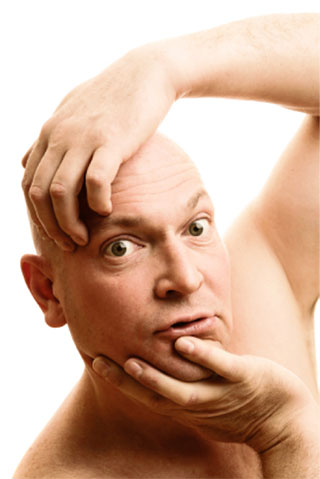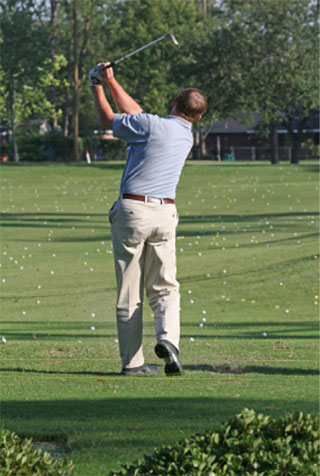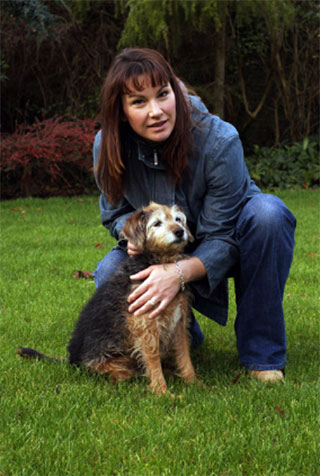Feeling dizzy or unbalanced? We can help.
What is Vertigo?
Vertigo is a problem with your VESTIBULAR SYSTEM!
Vertigo is a sense of your environment spinning around you, and may be accompanied by nausea and loss of balance. Vertigo is a common health problem affecting all ages and up to four in ten people over their lifetime. It is generally caused by a problem in the balance (Vestibular system) of the inner ear.
When the Vestibular System in your inner ear is not working well you may feel one or more of the following:
- Vertigo – where you feel the world is spinning or that you are spinning.
- Loss of balance, particularly in low light conditions where you cant see well, potentially resulting in a fall
- The environment may look or feel like it bounces around.
- You may feel dizziness, nausea and/or motion sickness when you turn your head, travel in a car or go into a busy visual environment such as the supermarket.
- A feeling of being unbalanced when going down a step.
How does the Vestibular System Work?
 Your Vestibular System is your balance system, located within your inner ear on each side of your head. Its role is to monitor the position and motion of your head and body. It keeps your vision steady when you are moving and helps maintain your posture and balance.
Your Vestibular System is your balance system, located within your inner ear on each side of your head. Its role is to monitor the position and motion of your head and body. It keeps your vision steady when you are moving and helps maintain your posture and balance.
Inside the Vestibular System are 3 semi-circular canals. These semi-circular canals detect movement of the head. There is a close link between these canals and the eyes and a reflex called the vestibular-ocular reflex constantly adjusts eye movements to enable clear vision when the head is moving. This enables you to keep your eyes focused on an object while your head is moving. The semi-circular canals also sense your body’s position in space and with feedback from other parts of your body, such as your eyes, joints and muscles, the vestibular system helps you make movements and adjustments to maintain your balance.
How Common is Vertigo?
Vertigo is a relatively common problem which affects approximately four in ten people over their lifetime. It is more common in women than men, and its prevalence increases with age.

Benign Paroxysmal Positional Vertigo – BPPV
One in ten people over 65 years experience dizzyness as a result of a condition called BPPV – Benign Paroxysmal Positional Vertigo. It is caused by crystal debris falling into the semicircular canals from another area of the vestibular system. When the head is moved, the crystals move in the canals, producing symptoms of vertigo or a spinning feeling. This can last from a few seconds to up to 60 seconds and stops when the crystals settle. The vertigo may return when you move your head again.
Treatment for BPPV
Treatment for BPPV involves using positioning techniques to move the offending crystals out of the vestibular semicircular canals where they are causing symptoms. This treatment is offered by our resident vestibular physiotherapist.
The vertigo may be fixed in one treatment but sometimes needs a few treatments, particularly when it has been present a long time. In up to 30% of people, there can be some recurrence, and if so, the physiotherapist can determine which is the most affected canal, and teach you how to manage the problem to minimise any symptoms. You may also be given exercises to improve the function of your vestibular system or to improve your balance.
BPPV can be very effectively treated by physiotherapists with special training in vestibular rehabilitation.

Low Vestibular Function
Sometimes after a viral illness of the inner ear such as Labyrinthitis, you may be left with some symptoms of reduced vestibular function. Vestibular function can also reduce with age, Menieres Disease and after anti –cancer medications which contain platinum or the aminoglycoside group of antibiotics.
If this is the case, you may feel:
- A sense of the environment moving around you as you change positions
- Reduced balance particularly when you are not able to use your eyesight as much, such as dimly lit environments or when getting up at night. This may lead to reduced safety and falls.
- Difficulty standing on one leg with your eyes closed (normal is approx 20secs)
- Feeling insecure or unsteady when turning or changing directions.
- Spinning, dizziness, nausea and motion sickness on body or head movements
- Feeling motion sick when you go to busy visual environments such as the supermarket.
Treatment for Low Vestibular Function
Whether in one or both ears, this can be improved. Treatment will usually involve using a combination of eye and balance exercises to increase both the function and speed of response of the vestibular system, which will in turn improve your balance.

Unbalanced or Having Falls?
Normal Balance is a complex interrelationship of many things and so can be affected by:
- The condition of the balance system of your inner ear.
- Muscle strength in your lower limbs.
- Joint flexibility and function of your legs.
- Some types of medications.
- Reduced sensation in your feet e.g. from Diabetes
- Tightness in your muscles
- Age related changes.
- Neurological disorders which affect your ability to move around and your balance reactions.
- Vision.
Balance Therapy and Vestibular Rehabilitation
Treatment of vertigo is a specialist area of Physiotherapy which requires specialist training and experience.
A tailored program includes a thorough assessment and an individual program to improve the reversible factors contributing to your balance problems. This program may include:
- A strength and stretch program for your lower limbs as strength is critical for balance.
- Treatment of painful joints which affect your ability to move.
- Treatment of any inner ear (vestibular) problems causing vertigo(spinning sensation), or dizziness.
- Balance exercises to improve the speed of balance reactions, so these can act more quickly to prevent you losing your balance.
- Advice regarding walking aids if needed to improve your safety.
- Advice regarding improved safety in your home.
COMING SOON Vestibular Physiotherapist starting in Wantirna.
Seeking treatment for your vertigo and imbalance enables you to get on and enjoy the things you want to do in life.

